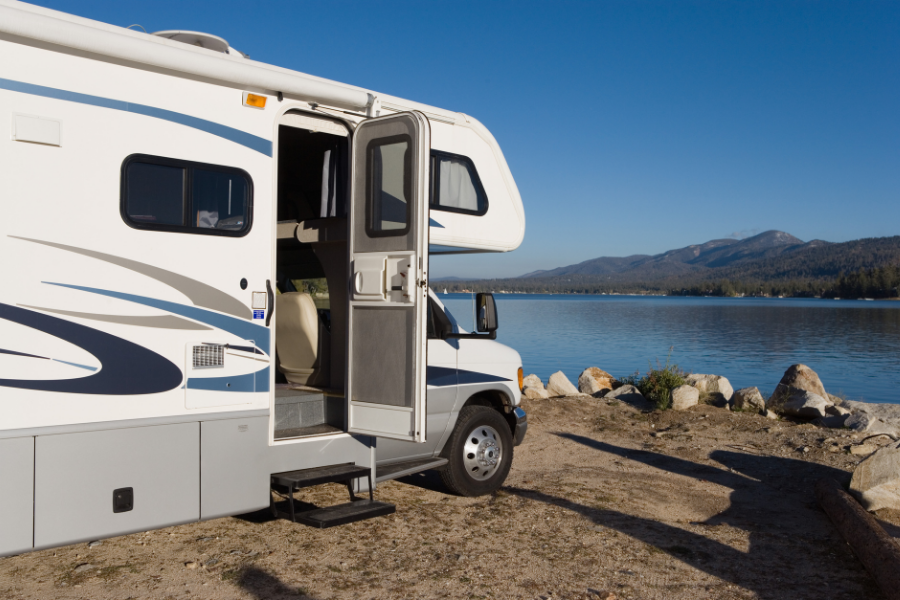Six Things to Consider Before Adopting a Nomadic Lifestyle

Imagine waking up in new places around the U.S. (or the world), meeting new people, and having new adventures all year long – not just during your regularly scheduled vacation. Living a “nomad” lifestyle is a growing trend – for people of all ages. Since the start of the pandemic, sales of recreational vehicles have skyrocketed, with wholesale shipments projected to exceed 600,000 units this year and next. In addition, the number of workers (called “digital nomads”) who embraced a location-independent, technology-enabled lifestyle grew from 7.3 million in 2019 to nearly 11 million in 2020. Are you considering a nomadic lifestyle in 2022? If so, consider these six tips as you create your plans:
Envision a “Year in the Life”
Although a nomadic lifestyle may sound like an opportunity to drift along on your own time to whatever destination sounds good in the moment, a successful nomadic lifestyle should include some advance planning. Start by considering the places you’d like to visit and how often you’d like to move from one place to another. If you are still working, what will you need to be able to complete projects, contact clients, or meet the requirements of your employer?
Once you’ve determined where you want to go and for how long, it’s time to put a price tag on your plans. How much will travel cost? Once at your destination, will you need a car or can you use public transportation? Will you need to rent an apartment or house? How much will food cost? Research your destination(s) to learn how costs compare to where you live now. Is the cost of a nomadic lifestyle sustainable?
What to Do with Your Current Home
Deciding what to do with your current home may depend on your life stage and how you intend to live as a nomad. Assuming you own your home, will you sell it or maintain it as a home base? If you don’t expect to return often, a low-maintenance condo or townhome could be a better option, and it’s one that’s popular with retirees who also own an RV, although you may need a place to store your RV when you are home.
In today’s hot real estate market, you may be able to help finance your nomadic lifestyle with the sale of your home. If you do, don’t forget to take advantage of the capital gains exclusion on the sale of your primary residence. Taxpayers may qualify to exclude up to $250,000 in capital gains from their income, or up to $500,000 of that gain for spouses who file jointly.
Net proceeds from a real estate sale can help you pay for an RV, if that’s part of your desired lifestyle plan. A home equity loan, loan against your portfolio, or withdrawal from your portfolio can also be used to help fund an RV.
Health Insurance
Not surprisingly, new health and travel insurance options are cropping up all the time for those who choose the digital nomad lifestyle. Even if you have insurance through your employer, you may need to consider purchasing additional insurance, or making changes to your current policy, to accommodate your new lifestyle. For those choosing to spend time in another country, it may be necessary to cover emergency healthcare, evacuation, repatriation and 24-hour assistance services, as well as accidental death and dismemberment.
If you are already on Medicare, consider a plan plus supplement with a nationwide network rather than a Medicare Advantage plan that may only have a local network.
Those who are not yet on Medicare and are purchasing insurance through the Affordable Care Act may also find their plan does not include a national network. In this case, you may need to shop for other options, or include out-of-network costs in your budget.
Estate Planning
As you design your next chapter as a nomad, make sure your estate plan also fits your new lifestyle. Before you embark on your new life, update your documents and review any implications of your lifestyle plan with your attorney. Have copies of your vital estate planning documents, such as Powers of Attorney or your health care directives, with you in case of an emergency, and provide copies to trusted family or friends who may need to act on your behalf.
Taxation and Domicile
Just because you hit the road doesn’t mean you won’t owe state taxes where you live. To sever an old domicile and reduce or eliminate your tax exposure, you will need to establish a new domicile. That means that while you may only spend a few months in your home state, you may still owe taxes there. If you desire to truly be nomadic, consider setting up your domicile in a state with no state income tax, such as Alaska, Florida, Nevada, South Dakota, Tennessee, Texas, Washington, or Wyoming.
Have a Post-Nomad Plan
While living like a nomad may suit you for a while, you may grow tired of moving from place to place, or your employer may require you to return to the office. To accommodate a potential change in plans, you may need to fund a new, non-nomadic lifestyle at some point, and that may include needing to purchase another home if you sold yours previously.
While living life as a nomad may seem carefree, it’s not without some obstacles. Your financial advisor can help you identify potential hurdles and develop contingency plans so you can enjoy your next chapter, wherever that may take you.

